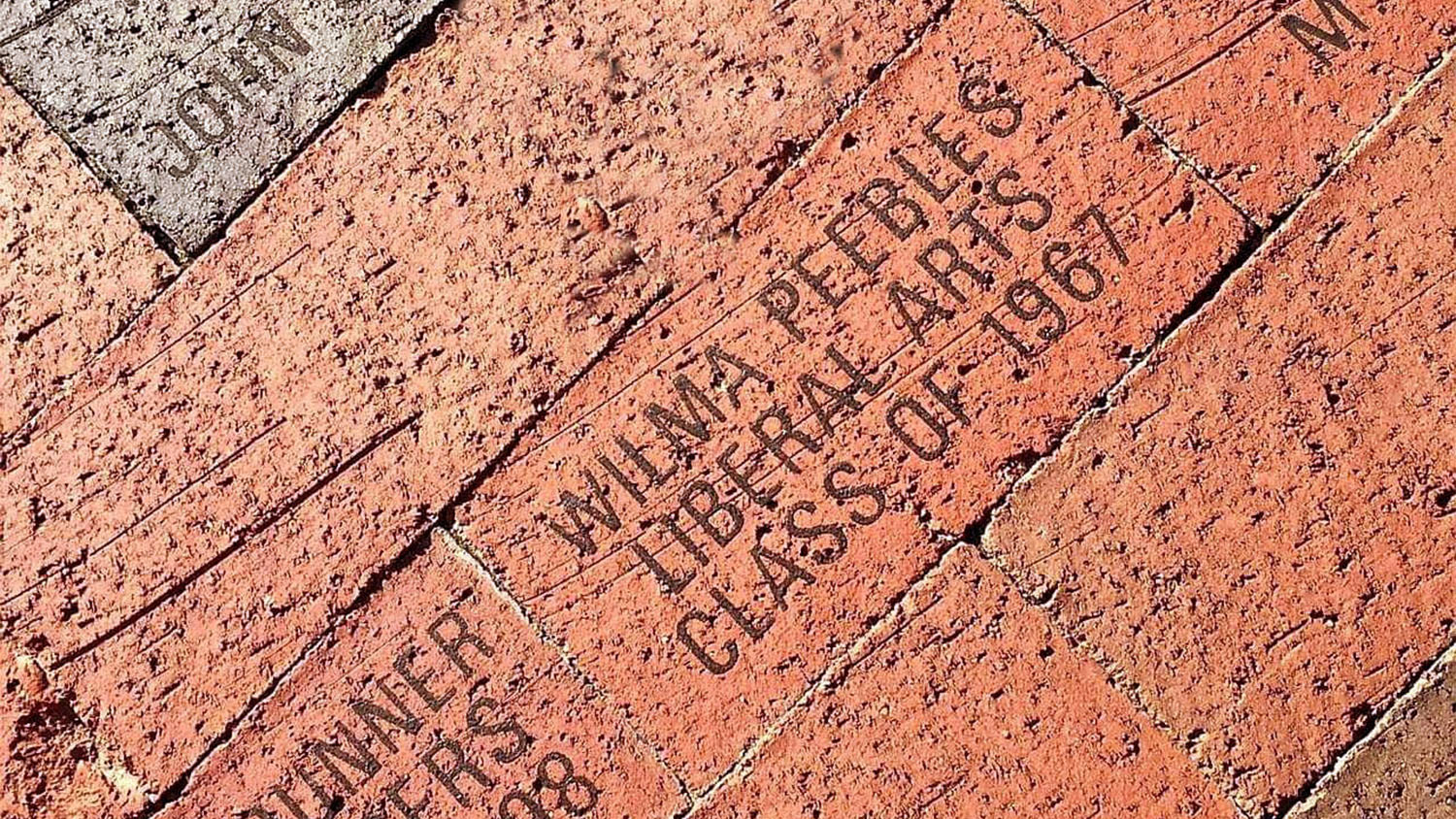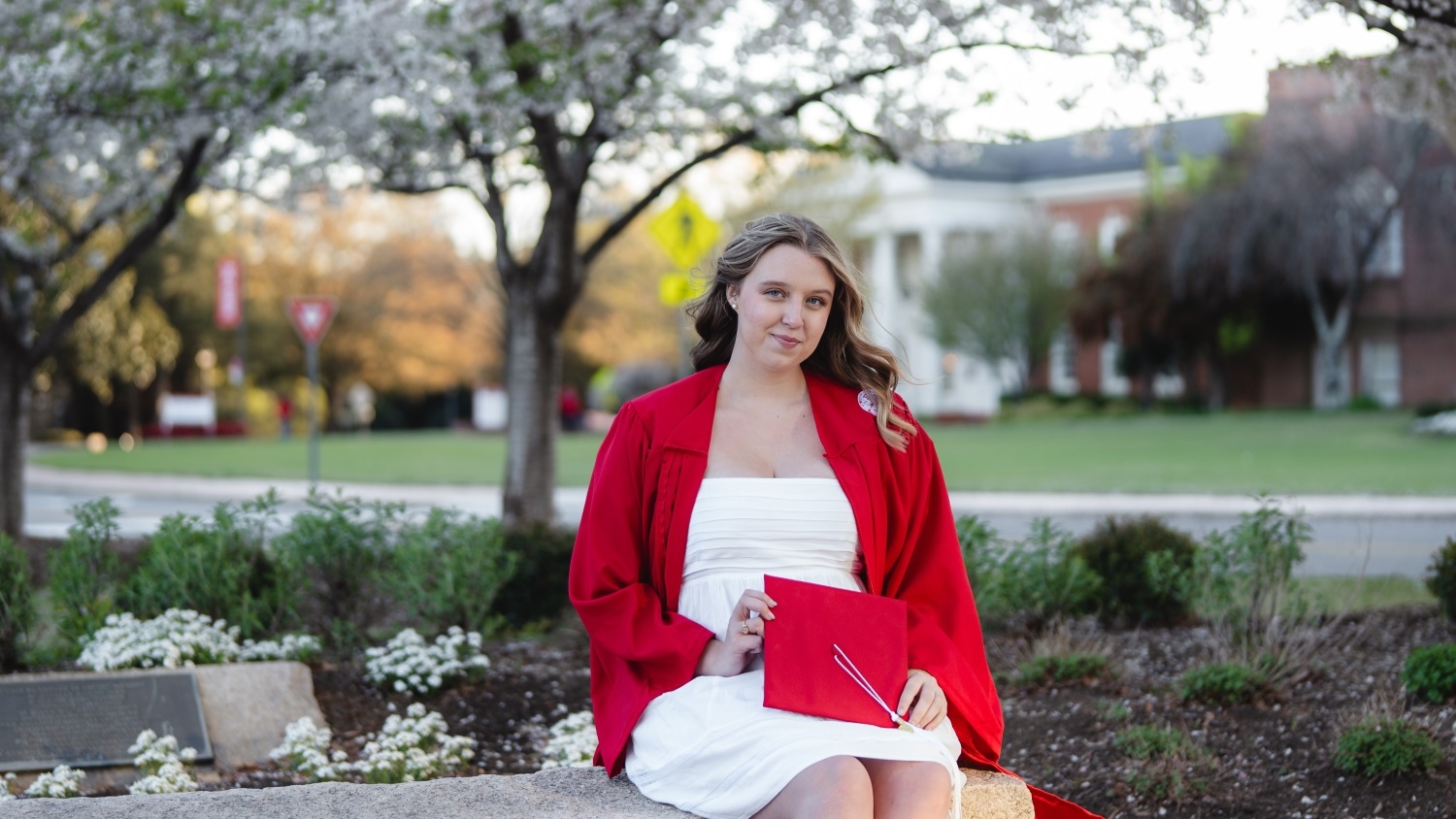A Lasting NC State Connection
Alumna and former social work professor Wilma Peebles-Wilkins was one of the first Black women to graduate from the college with a degree in sociology and a minor in social work.

“NC State has been a part of me all my life.”
For 1967 alumna and former social work professor Wilma Peebles-Wilkins, that statement is no exaggeration.
Peebles-Wilkins’ connection to her alma mater started when she was a young girl growing up in the Oberlin Village area of Raleigh during the civil rights movement. Over the years, she became one of the first Black women to graduate from the College of Humanities and Social Sciences with a sociology degree and a minor in social work. She also returned as a social work professor, administrator, donor and alum.
Peebles-Wilkins, who also earned a master’s degree in social administration and a Ph.D. in educational history and philosophy, has 50-plus years of experience as a social worker, administrator, educator and advocate for health care and services to families and children. As such, she has garnered titles like pioneer and trailblazer and myriad accolades, including the 1988-89 Outstanding Teacher Award from NC State.
Her career in academia includes working at Eastern Kentucky University and Case Western Reserve University before coming to NC State. During her 13-year tenure at NC State, she served as director of the social work degree program, associate head of the Department of Sociology, Anthropology and Social Work, and associate professor.
After that, Boston University’s School of Social Work recruited her to serve as associate dean for academic affairs. She went on to become its acting dean, then dean — and now is dean emeritus at Boston University.
In between, Peebles-Wilkins carved out time to serve on numerous committees, write (extensively about the history of Blacks in American social welfare for various publications), volunteer and give back to the college
To honor her love for NC State and social work — and her parents’ commitment to education — she established The Myatt-Peebles Scholarship Endowment for Social Work. The scholarship is given to undergraduate students pursuing a bachelor’s degree in social work, ensuring her connection to her alma mater would be a lasting one.
She has her father to thank for sparking that connection. He worked for nearly 40 years at NC State in different positions, starting in facilities at the agricultural experiment station. His outgoing personality also made him easy to talk with, and faculty and graduate students alike sought him out for his counsel and charm, says Peebles-Wilkins.
Her father’s relationships connected Peebles-Wilkins to NC State faculty and administrators. A botany professor, for instance, helped her create her high school science fair projects, and an admissions director assisted her when transferring from Syracuse University to NC State, where her passion for social work took root.
At NC State, she initially majored in botany, but poor vision hindered her from mastering the use of the microscope. Frustrated, she took a class in sociology, got an A, and decided: “This is where I should be,” she says and jokingly adds, “there were no microscopes.”
So, she switched her major to sociology with a minor in social work, which the college, then the School of Liberal Arts, offered.
What was it like attending NC State as one of the early Black female students during the 1960s?
“I didn’t think about it like that. I had been on that campus, and the professors were very good to me — even fatherly, and I had gone to an integrated high school, so I was used to being in that environment,” she notes, adding with a laugh, “I had plenty of dates.
“But it wasn’t conflict-free – just like being in a family. I think of NC State like a family.”
As part of her undergraduate coursework, Peebles-Wilkins was required to work in the field. However, the only position open to Black students at that time was in the Wake County Juvenile Court system.
That experience, she explains, encouraged her to pursue a career in social work. Her first job with Child Protective Services led to her working with children and families.
Looking back, she says that advising and mentoring students is the role that has meant the most to her.
“I loved those students when I taught at NC State, and I felt they loved me,” she explains. “We had fun together. We learned from each other.”
She also established the endowment because of her love for students. “Students need money to go to school, and the indebtedness they incur is horrible,” she notes. The scholarship is one way to help.
For today’s students, Peebles-Wilkins offers this advice: Study, maintain your boundaries and do your work.
Asked how she feels when she is on campus today, Peebles-Wilkins says, “There has been growth and changes, but I have a good feeling. I don’t recognize some of the buildings, and then there is the Centennial campus, which is marvelous, just marvelous. And I still love the 1911 building.”
Why? Embedded in the building’s walkway is a brick with the inscription, Wilma Peebles, Liberal Arts, Class of 1967. And that’s another lasting connection to her alma mater.


